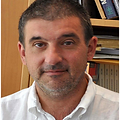Localways
mobilities, inequalities and citizenship
Team
We are a multidisciplinary team constituted by sociologists, anthropologists, geographers and architects.
We have considerable expertise on working in issues such as social capital formation, mobility and migration, social inequalities, suburbanization and social and spatial cohesion.

Renato Miguel do Carmo
Coordinator
Renato Miguel do Carmo is a PhD in Sociology by the Institute of Social Sciences of the University of Lisbon. His scientific path was orientated to the subject of social and spatial inequalities. Issues such as social exclusion, territorial marginalization, spatial mobilities and social capital have been at the core of his individual and collective research projects. Simultaneously, he has specialized in certain data analyses techniques. In addition, he has acquired some expertise in the supervision of socio-cultural animation and dynamization.
For more information, click here

Rita d'Ávila Cachado
Researcher
Rita d'Ávila Cachado is a PhD in Antropology by University Institute of Lisbon. She has published research in the field of sociology, urban antropology and ethnography.
Fore more information, click here

Sofia Santos
Researcher
Sofia Santos is a Master in Geography by the Faculty of Letters of the University of Lisbon. She has published research in the field of regional and local development, public policies, spatial planning, identity and territory, geographic mobility and sociology of the territory.
Currently, she is a PhD candidate at the University Institute of Lisbon..
Fore more information, click here

Nuno Nunes
Researcher
Nuno Nunes is a PhD in Sociology by University Institute of Lisbon. He has published research in the field of social inequalities, social classes, collective action and social changes.
Currently, he is working in Observatory of Inequalities at the University Institute of Lisbon.
Fore more information, click here

João Mourato
Researcher
João Mourato is a PhD in Town Planning by Bartlett School of Planning in University College London. He has published research in the field of policy analysis/policy studies, strategic planning, public policies, and governance studies.
Currently he is a post-doctoral researcher in Institute of Social Sciences of the University of Lisbon.
For more information, click here

Daniela Ferreira
Junior researcher
Daniela Ferreira graduated in Human Geography at the Institute of Geography and Spatial Planning of the University of Lisbon (IGOT-UL). She has been conducting studies in the field of consumption and retailing, spatial planning, commercial urbanism, public policies, and socially creative spaces.
Currently, she is a Master student in Spatial Planning and Urbanism in IGOT-UL.

Otávio Raposo
Researcher
Otávio Raposo is a PhD in Antropology by the University Institute of Lisbon. He has published research in the field of urban antropology, urban sociology, sociability, lifestyles and entity, ethnicity and migration, segregation, spatial mobility and social inequalities.
Fore more information, click here
Consultants

Luis Camarero Rioja
Luis Camarero Rioja is a PhD in Political Science and Sociology and a Full Professor at the Universidad Nacional de Educación a Distancia in Madrid.
He is a renowned expert of sociological research (rural and urban studies), namely in the field of social inequalities, mobilities and sprawl, and gender roles. He is also a specialist in methodological issues, such as survey applications and data analysis.
Fore more information, click here

João Ferrão
João Ferrão is a PhD in Human Geography by the University of Lisbon.
He is a geographer with a vast experience in the field of Urban Geography and strong expertise on regional studies and spatial planning (areas that will be fruitful for the theoretical development of the project).
He was president of Portuguese Association for Regional Development between 1987-1990. He was also Secretary of State for Spatial Planning and Towns in the XVII Constitutional Government (2005-9).
Currently, he is research coordinator at the Institute of Social Sciences.
For more information, click here